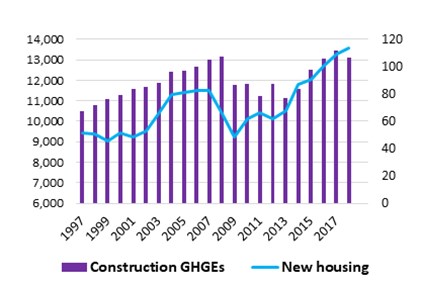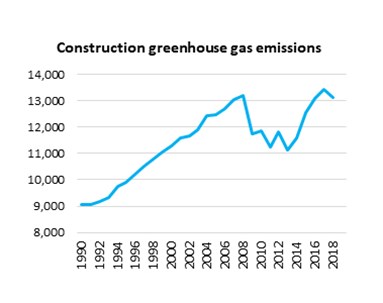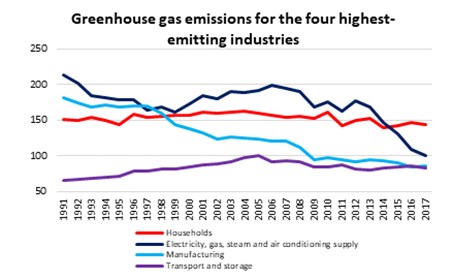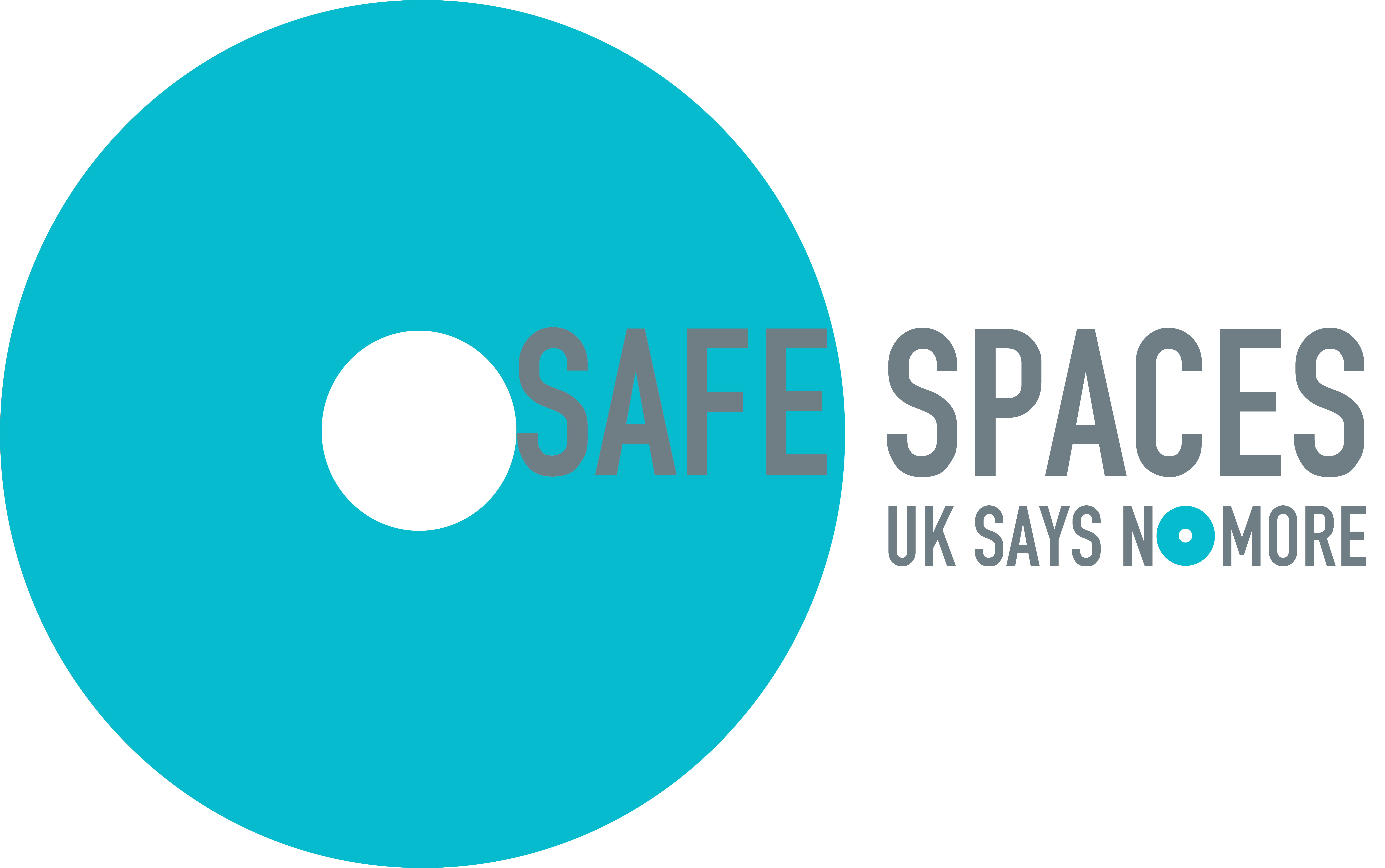BLOG: What role does social housing play in tackling the climate crisis? By Edie Marriner
27 July 2020

The UK has committed to carbon net-zero by 2050, but what does that mean for social housing? Our role in tackling the climate crisis is multi-faceted because not only do we build, design and maintain homes, we are guided by social purpose and are committed to the safety and wellbeing of our residents.
Edie Marriner, Research and Policy Officer, Network Homes

But the scrapping of the Code for Sustainable Homes in 2015, was a setback for sustainability. In 2017 the government committed to building 250,000 new homes per year, but this, coupled with a lack of sustainability guidelines, has led to a continued rise in greenhouse gas emissions of the construction industry. As you can see, this graph demonstrates that since 2013 greenhouse gas emissions from the construction industry have been on the rise in conjunction with an increase of new housing. This is problematic because building much-needed new homes shouldn’t jeopardise our efforts to halt climate change; they should be seen as interdependent objectives.

Building the homes we so desperately need, should not result in energy inefficient homes with a costly lifecycle. Our solution must not contribute to a climate crisis that will see extreme level of overheating and ultimately damage the livelihoods and wellbeing of our residents.
This graph below demonstrates the impact of households on the environment, the biggest greenhouse gas emitter since 2015. Here, ‘household’ accounts for what we spend and our activities. As providers of homes, we have a responsibility to build,design and maintain homes that encourage a sustainable lifestyle.

Building and construction are responsible for 39% of all carbon emissions in the world, coming from energy used to heat, cool and light buildings and the materials and construction processes from the whole building lifecycle. We have a unique position as long-term social landlords, we will be negatively affected by higher lifecycle costs if our homes are built inefficiently. Our commitment to our residents should incorporate our commitment to tackling the climate crisis, ensuring that residents have resilient, high quality homes that eradicates the prospect of fuel poverty and simultaneously halting of disastrous levels of global warming.
Network Homes’ currently have a draft Sustainability Strategy divided into ‘our existing stock’, ‘our new homes’, ‘our workplace and ‘our procurement’. This was discussed at one of our Network Thinks events and was great to see the range of ideas and enthusiasm all the attendees had for making sustainability a first-tier issue at Network Homes. We hope to finalise this strategy by August, outlining our commitment to sustainability and ambition to reap the multitude of benefits that being environmentally friendly can have for our residents, communities, staff and ultimately the planet.

